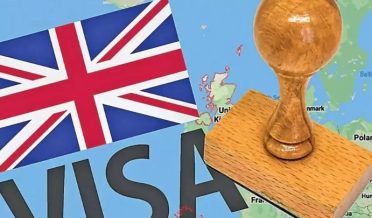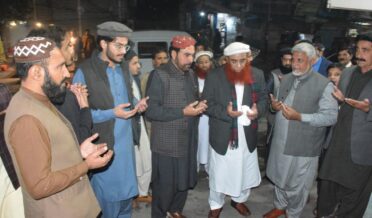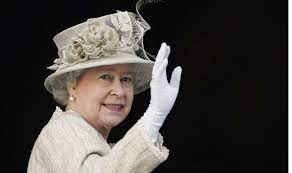Although, 25th of December is called Christmas day in Western world but just think why is Christmas called “bada din” (big day) in Urdu? It would not an exaggeration, if we call Pakistani culture as the combination of traditions. Like all other festivals of Pakistan, Christmas is also celebrated in a big way in Subcontinent. But have you ever thought why Christmas is called as Bada Din (Big Day) in Subcontinent? Well, Christmas is celebrated for the joy of birth of the Lord Jesus Christ.
There are different kinds of prevalent and beliefs calling Christmas as Bada Din in Pakistan. It is said that before Christmas was also named as Roman Festival in Indian subcontinent, people used to give gifts to each other in this beautiful occasion. When gradually Christian civilization began to flourish in India, they started to celebrate this festival as Bada Din. Beside this, there are many stories attached with the birth of Lord Jesus which are prevalent in Indian subcontinent.
Did Quaid-i-Azam promise to recreate the Riasat-e-Madina, ?
Although, The Nation celebrates Quaid’s 144th birthday of the nation’s founder Quaid-i-Azam Mohammad Ali Jinnah is being observed today with traditional zeal and enthusiasm across the country. The day started with a change of guard’s ceremony at Jinnah’s mausoleum in Karachi. The national flag was been hoisted at all government and private buildings and special events have been planned for the day to shine a light on Jinnah’s life and legacy, Radio Pakistan reported.
Chief of Army Staff Gen Qamar Javed Bajwa, Sindh Chief Minister Murad Ali Shah and Governor Imran Ismail also visited Jinnah’s mausoleum on the occasion. In his message on the occasion, President Arif Alvi termed Jinnah as a “visionary man who envisaged a separate identity, needs and political direction of the Muslims of the subcontinent”. “The acumen of his foresight and vision can be witnessed even today with the prevailing conditions in India and occupied Kashmir,” said the president and urged the nation to “stand united and re-affirm our faith in his teachings”. Prime Minister Imran Khan, in his message for the nation, said that the “best way to pay homage to the Quaid on his birth anniversary is to adhere to his principles of Unity, Faith and Discipline”. Both the president and the prime minister said that the Indian government’s move to strip occupied Kashmir’s special status and its actions have “again vindicated the conviction of the great Quaid”. In a tweet, the premier said that on Jinnah’s birthday, “we as a nation must resolve to build Pakistan in accordance with his vision of an Islamic welfare state based on compassion [and] human dignity; justice [and] rule of law; and a plural inclusivist society.”
Chief of Army Staff Gen Qamar Javed Bajwa visited Jinnah’s mausoleum on the occasion.”Quaid’s vision about creation of Pakistan based on two-nation theory is an even more acknowledged reality today. We can’t thank him enough for having got us Pakistan,” Gen Bajwa was quoted as saying in a tweet,
but we can emphasize that the PTI government is not doing a good job of implementing its vision and not providing the opportunity of seeing how well or badly the nation has performed. The PTI government has not done particularly well in this regard, for it has not succeeded in implementing any of the components of his vision for Pakistan. The basis of his vision was a democratic polity, in which the elected government was supreme. The PM certainly did not foresee the current arrangement, in which the government seems to have ceded so much space to other institutions that it no longer claim to have the final authority in the state. That the state founded by the Quaid has spent so much time under direct military rule and has spent much of the remaining time with civilian governments either accepting military superiority or looking fearfully over their shoulder at them. One symptom has been the desire to centralise implicit in the talk of a presidential system and about the need to abolish the increase in provincial powers, even though the Quaid saw Pakistan as a federal state with strong provinces.
The reversal of the Quaid’s legacy is not limited to that. He saw Pakistan as a safe haven for minorities, what with two members of Pakistan’s first Cabinet belonging to the minorities. While Pakistan’s being placed on the USA’s list of countries with records of religious intolerance has been fiercely rejected by the Pakistan Foreign Office, it’s very presence on that list, and that too for some years, indicates that the present government has done little or nothing to improve the situation of minorities. The Quaid also saw Pakistan as being a welfare state, but the present government has not done anything in this direction. Rather, the reverse, for the main thing the PTI government boasts of, the IMF agreement, has placed a heavy burden on the common man.
Surely, The Quaid was wiser than Prime Minister Imran Khan, for he made no promise to recreate the Riasat-e-Madina, even though he looked to the Meethaq-i-Madina for the model of a constitution, for he well understood that it was the constitution of a state, and keeping all organs within their prescribed limits, that really matters, rather than flashy promises or catchy slogans.
Editor







